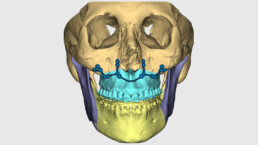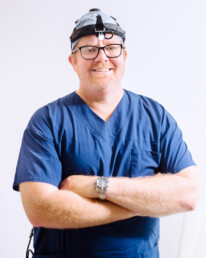Orthognathic Surgery
What is Orthognathic Surgery?
Orthognathic surgery or corrective jaw surgery is performed to provide aesthetic facial harmony and improve the occlusion (bite) and function of the jaws. It can also improve symptoms of obstructive sleep apnoea by opening the airway.
Orthognathic surgery may be performed on the top and/or bottom jaw(s). It is usually performed in conjunction with orthodontic treatment (braces) to align and straighten the teeth which allows a stable platform for surgery.

Double jaw surgery planning showing custom maxillary plate
Symptoms and signs that may indicate a need for orthognathic surgery include the following:
- Small or “weak” chin/jaw
- Protruding jaw
- Difficulty chewing or biting food
- Sleep apnoea (breathing problems during sleep, such as snoring)
- Unbalanced facial appearance
- Open bite (space between upper and lower front teeth when the mouth is closed)
- Inability to make lips meet without effort
- Chronic mouth breathing with dry mouth and inflamed gums
How do you treat these conditions?
At your initial consultation, Dr Tuckett will take a thorough history, perform a comprehensive examination and review any x-rays which your Dentist or Orthodontist may have organised. He will arrange to take scans of your teeth.
Dr Tuckett will explain to you the options for surgical management of your condition and discuss the procedure and any associated risks in depth. He will discuss whether you would benefit from single or double jaw surgery. He will also advise you of what to expect in the post-operative period.
What does Orthognathic Surgery involve?
Orthognathic surgery requires a significant amount of planning and Dr Tuckett with see you on several occasions. After your initial consult Dr Tuckett will review the digital impressions of your teeth and may arrange a CT Scan to assist in planning your custom designed and engineered bespoke titanium surgical guides and plates. Once the planning has been approved in consultation with your referring Orthodontist Dr Tuckett will arrange your surgical procedure date. Then, under general anaesthetic (while you are asleep) Dr Tuckett will carefully cut the bones and move the jaw(s) as required. Dr Tuckett will secure the bones in the new position with small bespoke titanium plates and screws.
Depending on the complexity of the case, the surgery may take one hour (for a single jaw procedure) to four hours (for combined upper and lower jaw surgery). You will usually spend one to two nights in hospital while you recover. Once Dr Tuckett Is happy with your progress you will be discharged home and he will review you in the rooms.
How long is the recovery after surgery?
Swelling is normal after orthognathic surgery and usually settles over a period of a few weeks. You will experience some discomfort especially in the first three days after surgery. Dr Tuckett and his experienced anaesthetists will arrange a tailored analgesic plan to alleviate any discomfort and promote accelerated healing and return to function. Our rooms will be able to provide a medical certificate so you can rest after your procedure.
You must maintain a soft, non-chew diet for a period of time after your operation. You will also need to avoid contact sports after your surgery. This is usually for 4-6 weeks to allow sufficient time for bony healing.
Dr Tuckett may apply elastic bands to your braces to guide your teeth and retrain the muscles of the jaw following surgery. You braces may remain for several months after your surgery to allow your Orthodontist to fine tune your new bite.
After your procedure, Dr Tuckett will provide you with specific instructions regarding your post-operative care, general instructions are available here.
If you would like further information on Orthognathic surgery please visit the British Orthodontic society website

About Dr Joel Tuckett
Dr Tuckett is a contemporarily trained Oral and Maxillofacial Surgeon. He engages in a patient centred approach to ensure a caring and comfortable journey from initial consultation to discharge.
Dr Tuckett is and internationally published author in the fields of Facial trauma, Antibiotic stewardship, Radiotherapy induced Xerostomia, Parotid surgery and Head and Neck cancer. He is a senior lecturer at the University of Queensland where he educates both medical and dental students.
He currently has public appointments at the Princess Alexandra, STARS and Mackay Base hospitals where he works to train the new generation of surgeon.
